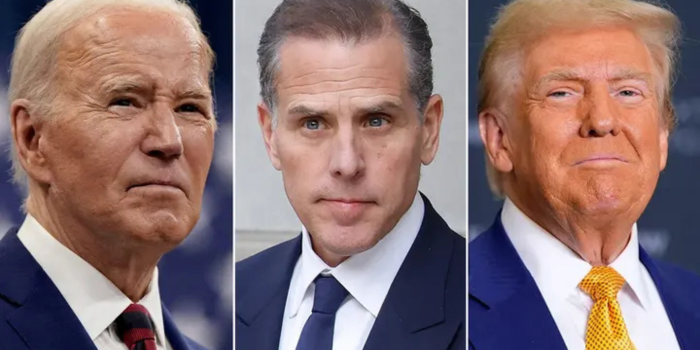Click on link
Trump Questions Justice System After Biden Pardons Hunter: A Call for Fairness
The controversy surrounding President Biden's pardon of Hunter Biden as Trump questions fairness in the justice system. Dive into the debate on January 6 detainees, selective prosecutions, and calls for justice reform.
TRENDY NEWS
12/2/20242 min read


Donald Trump has reignited discussions on fairness within the U.S. justice system following President Joe Biden's unexpected decision to pardon his son, Hunter Biden. The pardon, announced on Sunday, marked a significant reversal of Biden's earlier commitment not to intervene in Justice Department affairs regarding his family.
In a Truth Social post, Trump expressed frustration, questioning the unequal treatment he perceives within the justice system. He wrote, “Does the pardon given by Joe to Hunter include the J-6 Hostages, who have now been imprisoned for years? Such an abuse and miscarriage of Justice!” His statement referred to individuals charged in connection with the January 6 Capitol protests, some of whom remain in custody awaiting trial or serving lengthy sentences.
Trump's Perspective on Justice Reform
Steven Cheung, Trump’s incoming White House communications chief, issued a statement amplifying these concerns. Cheung criticized what he described as the Democratic Party's manipulation of the justice system, pledging that Trump would prioritize restoring fairness and due process if re-elected.
“The failed witch hunts against President Trump have proven that the Democrat-controlled DOJ and other radical prosecutors are guilty of weaponizing the justice system,” Cheung asserted. “That system of justice must be fixed and due process must be restored for all Americans.”
Biden Defends His Decision
President Biden defended his controversial pardon, citing his son’s struggles with substance abuse and the toll of selective prosecution. Hunter Biden had faced legal battles earlier this year, including convictions for firearm offenses and tax-related charges. In his statement, Biden explained that his decision was deeply personal and rooted in empathy for his son’s recovery journey.
"From the day I took office, I said I would not interfere with the Justice Department’s decision-making, and I kept my word even as I have watched my son being selectively, and unfairly, prosecuted,” Biden said. He highlighted that many individuals with similar circumstances, such as late tax payments or improper firearm purchase forms, typically receive non-criminal resolutions.
A Nation Divided
The contrasting perspectives of Biden and Trump have further polarized the national dialogue surrounding justice and accountability. Biden’s appeal for understanding drew on his identity as both a father and a leader, urging Americans to consider the human element behind his decision. "In trying to break Hunter, they’ve tried to break me,” he said, emphasizing the emotional toll his family has faced.
Meanwhile, Trump’s critique resonated with those who feel the justice system has failed to uphold impartiality. His call for the release of January 6 detainees underscored broader concerns about perceived political bias in prosecutions.
A Call for Unity
As the debate continues, the nation stands at a crossroads, grappling with critical questions about justice, equality, and the role of personal experiences in shaping presidential decisions. Whether these discussions will lead to meaningful reforms or deepen divisions remains uncertain.
What is clear is the urgent need for a justice system that Americans from all walks of life can trust—one that ensures fairness, transparency, and humanity in its proceedings.
Inspiring
Explore soul-driven content on travel, tech, news, books.
Insightful
Soulful
1234567890
© 2024. All rights reserved.


